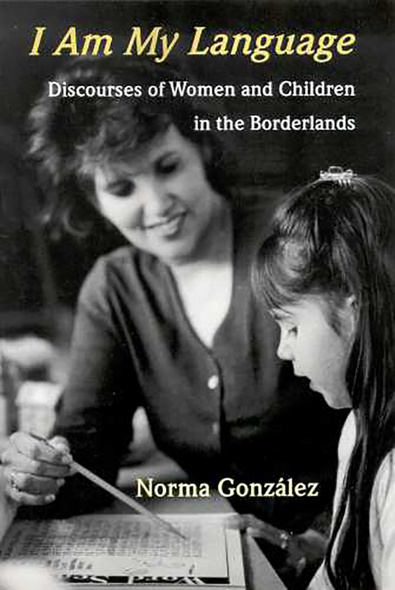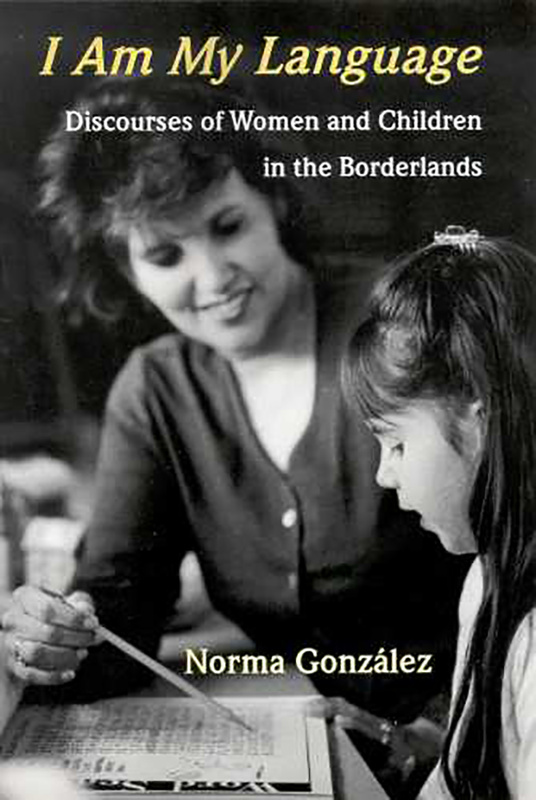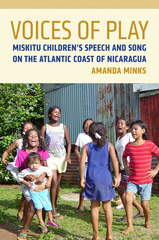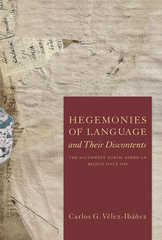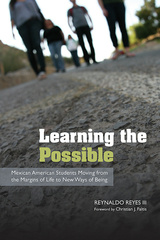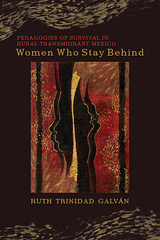I Am My Language
Discourses of Women and Children in the Borderlands
“I am my language,” says the poet Gloria Anzaldúa, because language is at the heart of who we are. But what happens when a person has more than one language? Is there an overlay of language on identity, and do we shift identities as we shift languages? More important, what identities do children construct for themselves when they use different languages in particular ways?
In this book, Norma González uses language as a window on the multiple levels of identity construction in children—as well as on the complexities of life in the borderlands—to explore language practices and discourse patterns of Mexican-origin mothers and the language socialization of their children. She shows how the unique discourses that result from the interplay of two cultures shape perceptions of self and community, and how they influence the ways in which children learn and families engage with their children’s schools.
González demonstrates that the physical presence of the border profoundly affects the practices and ideologies of Mexican-origin women and children. She then argues that language and cultural background should be used as a basis for building academic competencies, and she demonstrates why the evocative/emotive dimension of language should play a major part in studies of discourse, language socialization, and language ideology.
Drawing on women’s own narratives of their experiences as both mothers and borderland residents, I Am My Language is firmly rooted in the words of common people in their everyday lives. It combines personal odyssey with cutting-edge ethnographic research, allowing us to hear voices that have been muted in the academic and public policy discussions of “what it means to be Latina/o” and showing us new ways to connect language to complex issues of education, political economy, and social identity.
Introduction
1. Tucson: A Place in the Borderlands
The Borderlands
The Artificial Line
Hegemony and Resistance
The Ambiguity of ‘‘Mexican’’ Tucson
Borderlands as Metaphor
Borderlands as Analytical Tool
2. Las Familias
The Discarding of Paradigm
Methods and Participants: The How and the Who
Confidentiality of Data
Escobedo Family
Linares Family
Gallardo Family
Martínez Family
Cisneros Family
Aguilar Family
Salazar Family
Robles Family
The Pilot Study
Gómez Family
Gamboa Family
Interviewing
3. When the Facts Won’t Stay Put:
Finding Emotion in All the Wrong Places
4. The Hearts of the Children: Emotion, Language, and Identity
Emotion as Examinable
Pushing Emotion beyond Sociocultural Competence
The Emotion of Linguistic Input
The Emotion of Minority Status
Disambiguation and the Construction of Selfhood
A Metaphor for Language Use: The Dialogical Staircase, an Interactional Double Helix
Disambiguation and Self-Authorship
Diacritica
The Tucson International Mariachi Conference: Musical Discourse and Performed Identities
‘‘Structures of Feeling’’
5. Negotiating Ideologies across Social Memories
Women and Language
Iris Gallardo
Raquel Salazar
Maricela Benavides
Gender Ideologies and Bailes Folklóricos
Leticia’s Dance Studio
6. Testimonios of Border Identities: ‘‘Una mujer acomedida donde quiera cabe’’
Native-born and Immigrant Households
Cisneros Family
Language and Cross-Border Experiences
Personhood in Language Use
Testimonios of Immigrant Women
Señora Hernández
Señora Ortiz
The Fracturing of Gender Ideologies
7. Household Language Use: The Push and the Pull
Centripetal and Centrifugal Forces in Language Use
Household Discourse
Breakfast Table Conversation
The Bent Glasses Story
The Gómez Family
The Ties That Bind
Television and Telenovelas
Homework and Language
8. Where’s the Culture?
Latinos and Culture
Culture and ‘‘Multicultural Awareness’’
Processual Approaches to Culture
Culture in the Borderlands
If Not Culture, Then What?
Language and Culture
From ‘‘Language and Culture’’ to Language Ideologies
Contested Language Ideologies within the Borderlands
9. Beyond the ‘‘Disuniting’’ of America:
Implications for Schooling and Public Policy
Implications for Educational Public Policy and Schooling
The Dialectics of the Centripetal and the Centrifugal
Weaving the Threads Together
Dialogism within the Sociohistoric
Notes
References
Index

